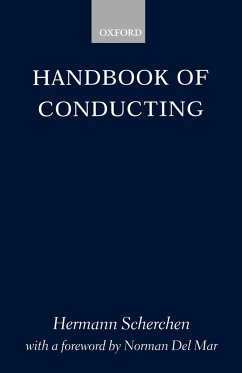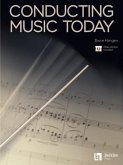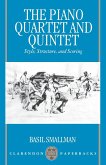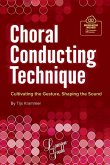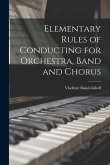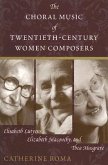Herman Scherchen (1891-1966), the distinguished German conductor, was largely self-taught in music. He played the viola in the Berlin Philharmonic (1907-10) and in 1918 founded the Neue Musikgesellschaft in Berlin. He was an ardent champion of twentieth-century music, especially that of Schoenberg, with whom he toured. From 1928 to 1933 he was in charge of music for the Konigsberg Radio and in 1933 settled in Switzerland and led for six years the Zurich Radio Orchestra. A number of Scherchen's classic recordings from the 1950s and early 1960s are again available, now on compact disc. Handbook of Conducting offers an admirably full and clear analysis of the techniques of conducting. First published in 1933, it is still of immense value to all students of conducting. It will be of interest as well to all musicians and anyone who listens to orchestral music.
The distinguished German conductor Hermann Scherchen, 1891-1966, became a legend in his own time as a supremely knowledgeable, inspiring, and uncompromising advocate of the most demanding orchestral repertoire. The founder of the Berlin Society of New Music, he was an ardent champion of 20th-century music, especially that of Schoenberg, with whom he worked, and of Webern. He settled in Switzerland in 1933 and was for six years the conductor of the Zurich Radio Orchestra. His classic handbook offers an admirably full and clear analysis of the technique of conducting, at the first time giving a fascinating glimpse of orchestral life in Scherchen's time. First published in 1933, it has lost none of its ability to instruct and inform aspiring conductors. It will be of absorbing interest, furthermore, to any musician or concert-goer.
Hinweis: Dieser Artikel kann nur an eine deutsche Lieferadresse ausgeliefert werden.
The distinguished German conductor Hermann Scherchen, 1891-1966, became a legend in his own time as a supremely knowledgeable, inspiring, and uncompromising advocate of the most demanding orchestral repertoire. The founder of the Berlin Society of New Music, he was an ardent champion of 20th-century music, especially that of Schoenberg, with whom he worked, and of Webern. He settled in Switzerland in 1933 and was for six years the conductor of the Zurich Radio Orchestra. His classic handbook offers an admirably full and clear analysis of the technique of conducting, at the first time giving a fascinating glimpse of orchestral life in Scherchen's time. First published in 1933, it has lost none of its ability to instruct and inform aspiring conductors. It will be of absorbing interest, furthermore, to any musician or concert-goer.
Hinweis: Dieser Artikel kann nur an eine deutsche Lieferadresse ausgeliefert werden.

